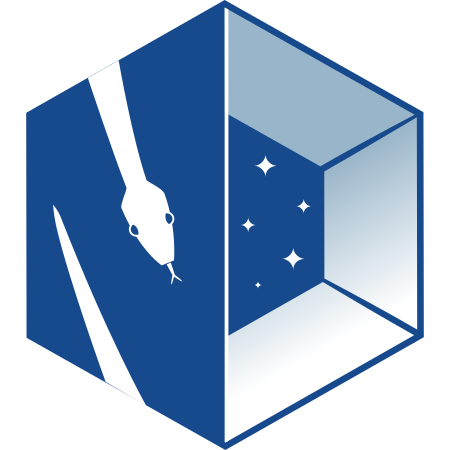Source code for ndcube.tests.helpers
"""
Helpers for testing ndcube.
"""
import unittest
from pathlib import Path
from functools import wraps
import astropy
import matplotlib as mpl
import matplotlib.pyplot as plt
import mpl_animators
import numpy as np
import pytest
from astropy.wcs.wcsapi.fitswcs import SlicedFITSWCS
from astropy.wcs.wcsapi.low_level_api import BaseLowLevelWCS
from astropy.wcs.wcsapi.wrappers.sliced_wcs import sanitize_slices
from numpy.testing import assert_equal
from ndcube import NDCube, NDCubeSequence
__all__ = ['figure_test',
'get_hash_library_name',
'assert_extra_coords_equal',
'assert_metas_equal',
'assert_cubes_equal',
'assert_cubesequences_equal',
'assert_wcs_are_equal']
[docs]
def get_hash_library_name():
"""
Generate the hash library name for this env.
"""
ft2_version = f"{mpl.ft2font.__freetype_version__.replace('.', '')}"
animators_version = "dev" if "dev" in mpl_animators.__version__ else mpl_animators.__version__.replace('.', '')
mpl_version = "dev" if "+" in mpl.__version__ else mpl.__version__.replace('.', '')
astropy_version = "dev" if "dev" in astropy.__version__ else astropy.__version__.replace('.', '')
return f"figure_hashes_mpl_{mpl_version}_ft_{ft2_version}_astropy_{astropy_version}_animators_{animators_version}.json"
[docs]
def assert_cubes_equal(test_input, expected_cube):
unittest.TestCase()
assert isinstance(test_input, type(expected_cube))
assert np.all(test_input.mask == expected_cube.mask)
assert_wcs_are_equal(test_input.wcs, expected_cube.wcs)
if test_input.uncertainty:
assert test_input.uncertainty.array.shape == expected_cube.uncertainty.array.shape
assert all(test_input.dimensions.value == expected_cube.dimensions.value)
assert test_input.dimensions.unit == expected_cube.dimensions.unit
if type(test_input.extra_coords) is not type(expected_cube.extra_coords):
raise AssertionError("NDCube extra_coords not of same type: {0} != {1}".format(
type(test_input.extra_coords), type(expected_cube.extra_coords)))
if test_input.extra_coords is not None:
assert_extra_coords_equal(test_input.extra_coords, expected_cube.extra_coords)
[docs]
def assert_cubesequences_equal(test_input, expected_sequence):
assert isinstance(test_input, type(expected_sequence))
assert_metas_equal(test_input.meta, expected_sequence.meta)
assert test_input._common_axis == expected_sequence._common_axis
for i, cube in enumerate(test_input.data):
assert_cubes_equal(cube, expected_sequence.data[i])
[docs]
def assert_wcs_are_equal(wcs1, wcs2):
"""
Assert function for testing two wcs object.
Used in testing NDCube.
Also checks if both the wcs objects are instance
of `~astropy.wcs.wcsapi.SlicedLowLevelWCS`.
"""
if not isinstance(wcs1, BaseLowLevelWCS):
wcs1 = wcs1.low_level_wcs
if not isinstance(wcs2, BaseLowLevelWCS):
wcs2 = wcs2.low_level_wcs
# Check the APE14 attributes of both the WCS
assert wcs1.pixel_n_dim == wcs2.pixel_n_dim
assert wcs1.world_n_dim == wcs2.world_n_dim
assert wcs1.array_shape == wcs2.array_shape
assert wcs1.pixel_shape == wcs2.pixel_shape
assert wcs1.world_axis_physical_types == wcs2.world_axis_physical_types
assert wcs1.world_axis_units == wcs2.world_axis_units
assert_equal(wcs1.axis_correlation_matrix, wcs2.axis_correlation_matrix)
assert wcs1.pixel_bounds == wcs2.pixel_bounds
def create_sliced_wcs(wcs, item, dim):
"""
Creates a sliced `SlicedFITSWCS` object from the given slice item
"""
# Sanitize the slices
item = sanitize_slices(item, dim)
return SlicedFITSWCS(wcs, item)
def assert_collections_equal(collection1, collection2):
assert collection1.keys() == collection2.keys()
assert collection1.aligned_axes == collection2.aligned_axes
for cube1, cube2 in zip(collection1.values(), collection2.values()):
# Check cubes are same type.
assert type(cube1) is type(cube2)
if isinstance(cube1, NDCube):
assert_cubes_equal(cube1, cube2)
elif isinstance(cube1, NDCubeSequence):
assert_cubesequences_equal(cube1, cube2)
else:
raise TypeError("Unsupported Type in NDCollection: {0}".format(type(cube1)))
